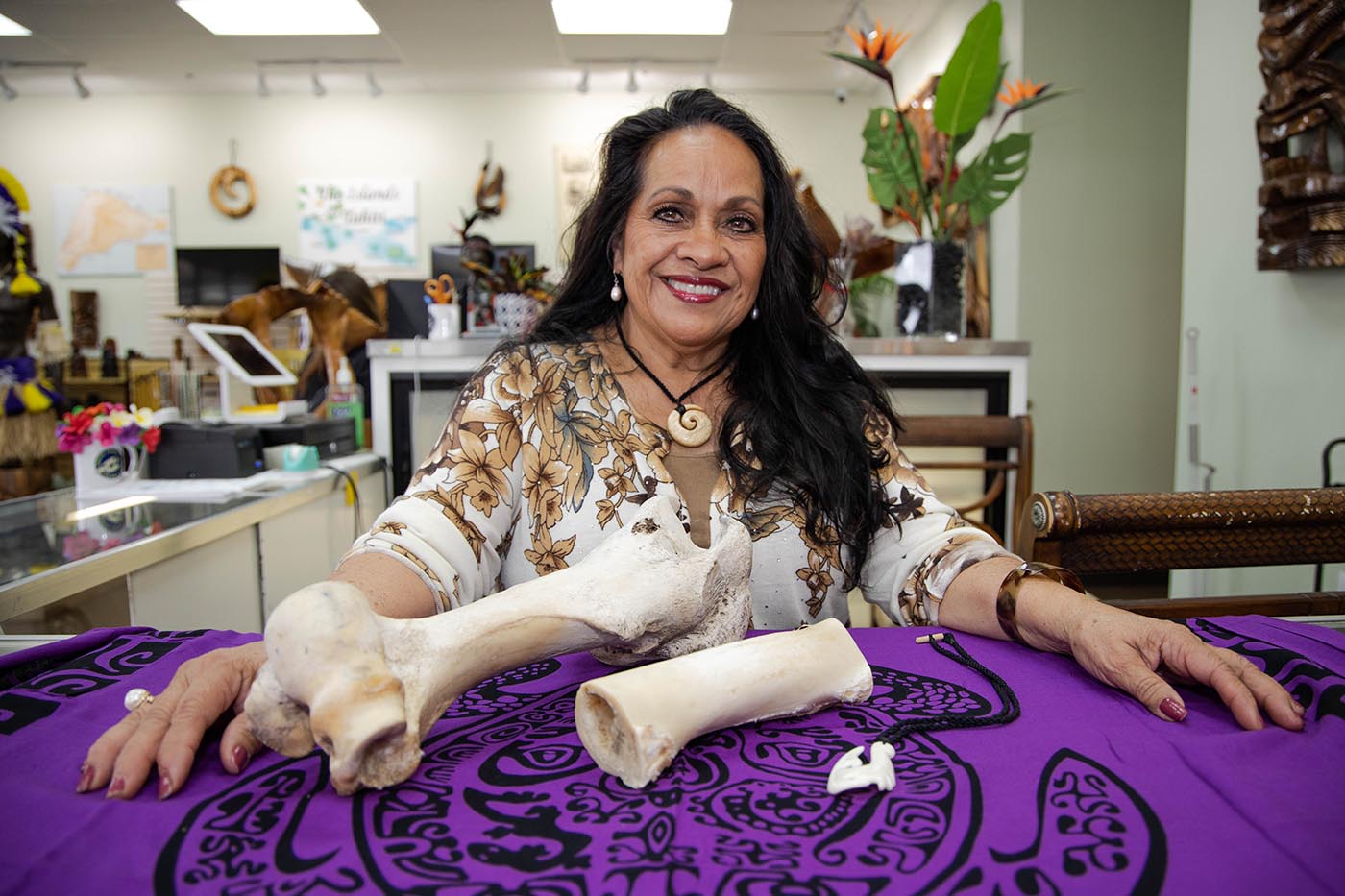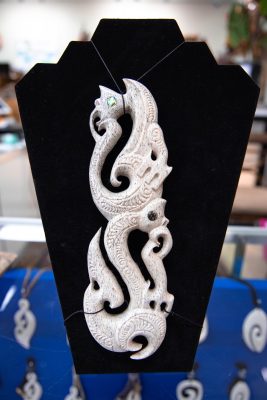
Carving a Niche with South Pacific Island Art
Shop Local
Far from the ocean, South Pacific Island Art (SPIA) founders Iuni U. Wolfgramm Tuaimei’uta and Sailosi Fa’onelua Tuaimei’uta bring the vibrancy of Polynesian culture to Utah through their Taylorsville storefront. At South Pacific Island Art, you can immerse yourself in traditional Polynesian art, jewelry, food, clothing, music and history.
Faced with the decline of cultural arts such as hand carving bones, weapons, wood and seashells, SPIA aims to preserve the history of these practices. Hand carving has a rich history; ancient Polynesians used the carvings to record their experiences, and traditional carvers were the key to keeping Polynesian heritage alive. Now, the honor falls on SPIA. “It is our responsibility to keep the art of hand carving and histories alive,” Iuni says. “The next generations rely upon the information carved on the bone and wood carvings to rekindle the past to the present. By educating them, it will instill a greater love and appreciation of their heritage.”

The carving process is a lengthy one, and even gathering the materials can be difficult due to regulations: Only a cow’s femur can be used, wood must be shipped in from Maui and whale bones, provided by Native Alaskans, must be either over 100 years old or fossilized. Still, SPIA perseveres, and their online store boasts a wide selection of intricate carvings, each with their own historical description. Their Double Twist cow-bone carvings are one example, and through SPIA, I learned that the three holes on the pieces represent body, mind and spirit. Twisted together, the carving becomes a symbol of two people united through friendship and love for infinity.
SPIA is much more than a store, focusing more on the art and history than the business side. As Iuni says, the rich history of Polynesia creates the business. “Our main focus was to build upon the foundation of our ancestors’ migrations and heritage. We wanted to develop a place where art, culture and education can be shared,” Iuni says. “The public can come shop, learn and leave with a greater understanding and deeper appreciation of the Polynesians.”
Although the storefront just opened Nov. 8, the permanent physical space has been a long time coming, Iuni says. Previously, SPIA made an appearance at events such as the 9th and 9th Street Festival and even spent time traveling around the United States, showcasing their work in places like Hawaii, Nevada, Colorado and Florida. “Sharing South Pacific art with the community has been a [lifelong] dream come true,” Iuni says. “My parents [have] had this vision and inspiration since we came here to America.”
Beyond carvings, there’s plenty more to explore at SPIA and even newer things in the works. Currently, SPIA hosts baking, cooking and craft demonstrations, an open mic, tours of the space to learn about the history of Polynesian migration and offers a fresh flower lei service for events. Alongside the carvings, you can purchase handcrafted South Pacific jewelry, Polynesian-inspired shirts and mugs or baked goods from MO’s Lovin Oven in the store.
“The next generations rely upon the information carved on the bone and wood carvings to rekindle the past to the present. By educating them, it will instill a greater love and appreciation of their heritage.”
Iuni says that creating the center has been one of the best decisions they’ve made. “The reaction from the public has been very positive,” she says. “Everyone who has come into our store is just amazed and so grateful for [us] bringing Polynesia and its history to help them learn and appreciate the Polynesian culture.”
In the future, SPIA hopes to continue developing programs to share Polynesian culture by partnering with other local organizations and schools. To support SPIA, stop by the store at 5612 S. Redwood Rd. View the full collection of carvings at myspia.com, and stay up to date with events through SPIA’s Instagram @myspia. “Being the very first Polynesian cultural store of this kind will educate so many people on a very different experience,” Iuni says. “We hope that it will be a place to come see and experience when visiting Utah.”

